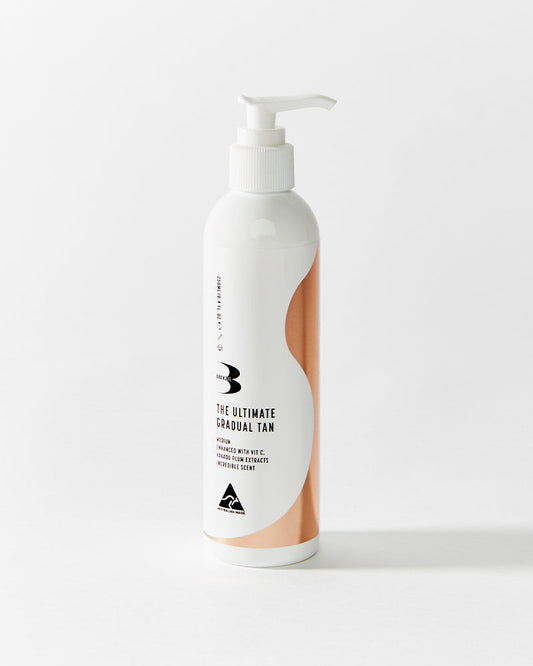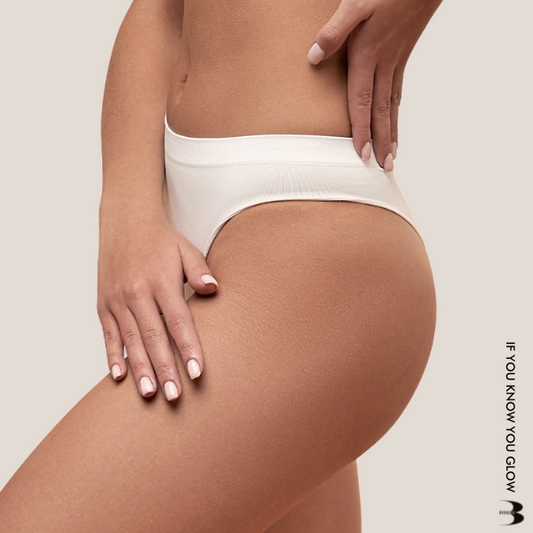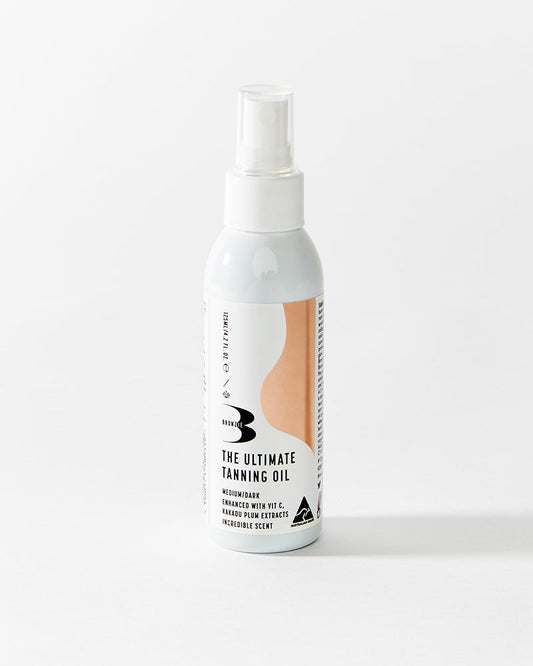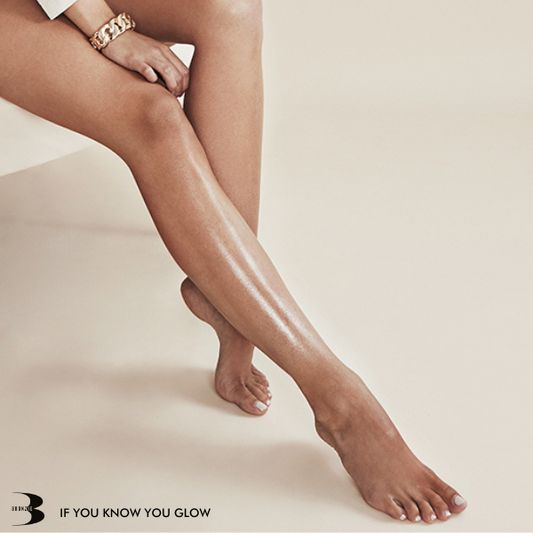Vitamin D, also known as the "sunshine vitamin", is often associated with strong bones and a healthy immune system. However, its benefits go far beyond that. In fact, vitamin D is a secret weapon for achieving glowing skin. Not only does it help to maintain the skin's overall health, but it also provides numerous skin benefits of vitamin d that can help you achieve a radiant complexion. Let's dive deeper into how this essential nutrient can transform your skin and give you that enviable glow.
Understanding the Role of Vitamin D in Skin Health
Vitamin D plays a crucial role in maintaining healthy skin. When sunlight touches our skin, it triggers a process that converts a cholesterol compound into vitamin D. This active form of the vitamin acts as a hormone that regulates various processes in our bodies, including skin health.
One of the key roles of vitamin D in skin health is its ability to support the production of collagen. Collagen is a protein that gives our skin its structure, strength, and elasticity. As we age, collagen production naturally decreases, leading to the formation of fine lines and wrinkles. Vitamin D helps to stimulate collagen production, keeping our skin firm and supple.
In addition to collagen production, vitamin D also has anti-inflammatory properties. It helps to reduce redness, swelling, and irritation in the skin. This can be particularly beneficial for individuals with inflammatory skin conditions such as acne, eczema, or psoriasis.
Furthermore, vitamin D plays a vital role in regulating the skin's barrier function. It helps to strengthen the skin's protective barrier, which is essential for keeping moisture in and harmful irritants out. By maintaining a healthy skin barrier, vitamin D helps to prevent dryness, flakiness, and sensitivity.
Overall, vitamin D is an essential nutrient for achieving and maintaining healthy skin. It supports collagen production, reduces inflammation, and enhances the skin's barrier function. By harnessing the power of vitamin D, you can achieve a radiant complexion and unlock the secret to glowing skin.
Harnessing the Power of Vitamin D for Enhanced Skin Glow
Now that we understand the important role that vitamin D plays in maintaining healthy skin, let's explore how we can harness its power to achieve an enhanced skin glow.
First and foremost, the most effective way to increase your vitamin D levels is through safe sun exposure. Spending some time outdoors, preferably in the morning or late afternoon when the sun's rays are less harsh, can help your skin absorb the vitamin D it needs. Remember to always wear sunscreen and protect your skin from harmful UV rays.
If you live in an area with limited sunlight or if you prefer to avoid sun exposure, you can also increase your vitamin D intake through your diet. Foods rich in vitamin D include fatty fish like salmon and mackerel, fortified dairy products, and egg yolks. Consider incorporating these foods into your meals to boost your vitamin D levels. In some cases, supplementation may be necessary to ensure adequate vitamin D levels. Consult with your healthcare provider to determine if vitamin D supplements are right for you and to determine the appropriate dosage.
To maximise the skin benefits of vitamin D, it's important to maintain a consistent skincare routine. Cleanse your face twice a day, followed by a gentle exfoliation to remove dead skin cells and allow vitamin D to penetrate better. Use a moisturiser that contains vitamin D or add a few drops of vitamin D oil to your regular moisturiser. Additionally, incorporate products with ingredients like hyaluronic acid and antioxidants, as they can enhance the effects of vitamin D and promote overall skin health.
By harnessing the power of vitamin D through sun exposure, diet, supplementation, and a consistent skincare routine, you can enhance your skin's natural glow and unlock the secret to radiant skin.
Steps to Boost Your Vitamin D Intake for Optimal Skin Benefits
Boosting your vitamin D intake is key to reaping the optimal skin benefits. Here are some steps you can take to ensure you're getting enough of this essential nutrient.
First and foremost, safe sun exposure is the most effective way to increase your vitamin D levels. Spend some time outdoors, preferably in the morning or late afternoon when the sun's rays are less harsh. Remember to wear sunscreen and protect your skin from harmful UV rays.
If sunlight is limited or you prefer to avoid sun exposure, you can also increase your vitamin D intake through your diet. Incorporate foods rich in vitamin D such as fatty fish like salmon and mackerel, fortified dairy products, and egg yolks. These delicious options will not only boost your vitamin D levels but also add variety to your meals.
Supplementation may be necessary in some cases. Consult with your healthcare provider to determine if vitamin D supplements are right for you and to determine the appropriate dosage.
To maximise the skin benefits of vitamin D, maintain a consistent skincare routine. Cleanse your face twice a day, followed by gentle exfoliation to remove dead skin cells and allow vitamin D to penetrate better. Use a moisturiser that contains vitamin D or add a few drops of vitamin D oil to your regular moisturiser.
Additionally, incorporate products with ingredients like hyaluronic acid and antioxidants, as they can enhance the effects of vitamin D and promote overall skin health.
By taking these steps to boost your vitamin D intake, you can ensure your skin receives the optimal benefits and achieve that radiant glow you've been longing for. So go ahead, embrace the power of vitamin D and unlock the secret to glowing skin.
Notable Wonders of Vitamin D: From Fighting Skin Conditions to Slowing Ageing
Vitamin D is not only a powerhouse for achieving glowing skin but also offers a range of notable wonders when it comes to fighting various skin conditions and slowing down the ageing process.
One of the remarkable benefits of vitamin D is its ability to combat acne. It helps regulate the production of sebum, the oily substance that can clog pores and lead to breakouts. By reducing sebum production, vitamin D helps to prevent the formation of acne and promote clearer skin.
Moreover, vitamin D's anti-inflammatory properties make it a valuable asset in treating skin conditions like eczema and psoriasis. It helps to reduce redness, itchiness, and irritation, providing relief and soothing inflamed skin.
In addition to its impact on specific skin conditions, vitamin D also plays a role in slowing down the ageing process. As mentioned earlier, it stimulates collagen production, which is essential for maintaining the skin's elasticity and firmness. This can help reduce the appearance of fine lines, wrinkles, and sagging skin, keeping you looking youthful and radiant.
By incorporating vitamin D into your skincare routine and ensuring adequate levels in your body, you can harness its remarkable wonders for fighting skin conditions and slowing down the ageing process. Say goodbye to blemishes and hello to a youthful, glowing complexion with the power of vitamin D.
Cautions and Considerations in Vitamin D Usage
While vitamin D is incredibly beneficial for your skin, there are a few cautions and considerations to keep in mind when it comes to using this essential nutrient. First and foremost, it's important to remember that vitamin D is fat-soluble, which means that it can accumulate in your body over time. Therefore, it's crucial to avoid taking excessive amounts of vitamin D supplements, as this can lead to toxicity.
Additionally, it's important to consult with your healthcare provider before starting any new supplements, especially if you have underlying health conditions or take other medications. They can provide guidance on the appropriate dosage and ensure that it doesn't interfere with any other treatments or medications you may be taking.
Another consideration is that while safe sun exposure is beneficial for increasing your vitamin D levels, it's essential to protect your skin from harmful UV rays. Remember to always wear sunscreen and protective clothing, and avoid prolonged sun exposure, especially during peak hours.
Lastly, if you have any concerns about your vitamin D levels or skin health, it's always best to seek professional advice. Your healthcare provider or a dermatologist can assess your specific needs and provide personalised recommendations for achieving and maintaining healthy, glowing skin.
By taking these cautions and considerations into account, you can safely and effectively incorporate vitamin D into your skincare routine and reap its numerous benefits for your skin.








